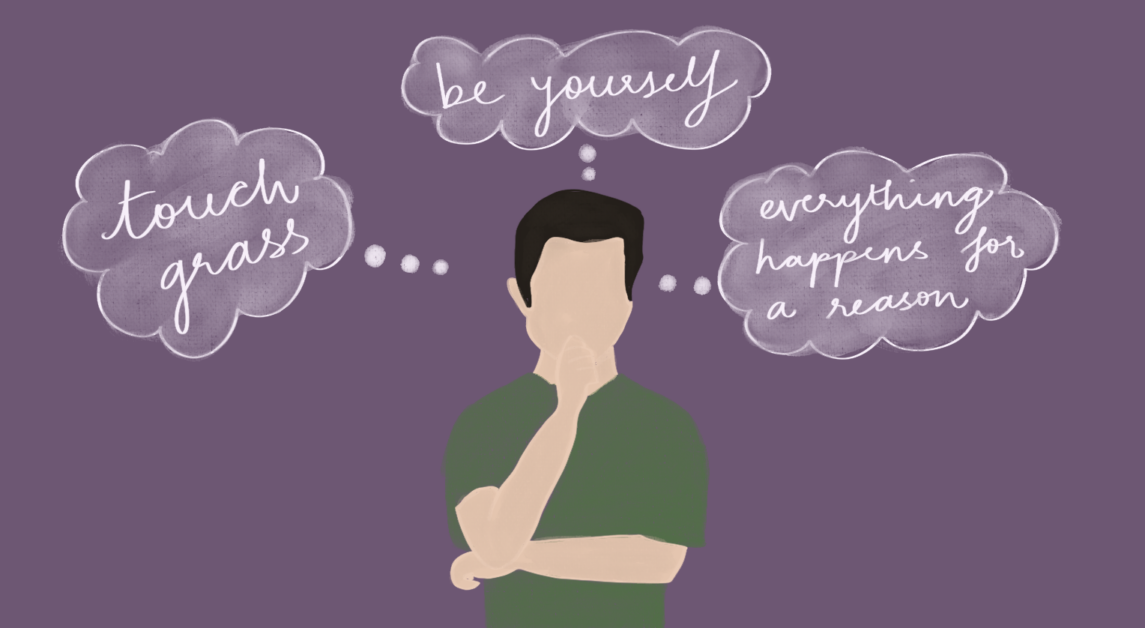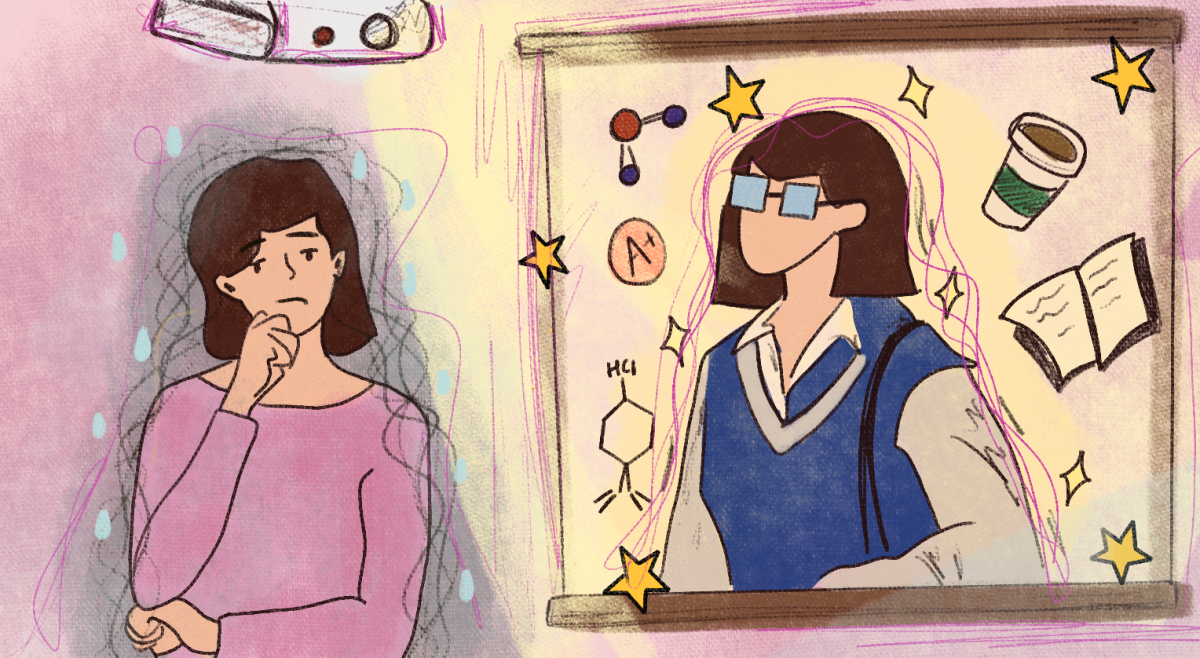In the words of a better columnist than me: We’ve arrived, inevitably, at the end of things. Unlike her, I can’t make my last Heights column a bohemian masterwork of creative self-reflection. But I can leave you with a few of the world’s most common pieces of advice—phrases so familiar we call them cliches. Overused? Maybe. But, through my life at BC, I’ve come to believe they’re overused for a reason.
My life, like anyone else’s, has criss-crossed with a cacophony of cliches. But there’s a difference between hearing a clichéd saying and truly understanding it. As I graduate from college and transition into the real world, here are a few of those overused pieces of advice that I hope you can inherit.
“Touch Grass”
We can say we use it to relax. We can compare it to people reading newspapers in train cars. But the technology we use to sedate ourselves—especially short-form smartphone content—is just abominable. And BC students are in an amazing position to fight it.
If, like the average college student, you spend 4.5 hours a day on social media, you are spending 28 percent of your waking life—and a whopping 57 percent of your leisure time—in a vacuum that squeezes your attention span, distorts your beliefs, and chips away at your self-esteem. Younger generations, born a few years deeper into the digital era, are seeing even more horrific effects of the iWorld on their cognitive abilities, social competence, and mental resilience. If you’re worried your time has gone to waste, don’t worry—it’s been commodified, packaged, and sold to the highest-bidding digital advertiser.
Wouldn’t you prefer to be normal again? Please touch grass, or at least touch anything other than a screen. Real life isn’t just a compilation of romanticized “experiences” Instagram throws at you. It’s a far better way to spend your time than “brain-rotting” on Reels, and it’s so easy to access through BC. Read a book from the library, exercise at the Plex, build something at the Makerspace, take a hike with Outdoor Adventures. I am barely scratching the surface of the possibilities of real life at BC—but it’s all worth it.
“Everything Happens for a Reason”
I used to hate this saying. It feels like a cop-out: If you receive bad news, and someone says, “Don’t worry, everything happens for a reason,” doesn’t it feel a little rude? It suggests that complaining or grieving over an event isn’t just futile—it’s an insult to the inevitable, fatalistic plan that dominates our lives but remains utterly incomprehensible.
I would always roll my eyes at this phrase. I chose to believe we do have agency, and this statement seemed at odds with free will. That was, until this year, when I had an epiphany:
“No, seriously, everything happens for a reason.”
This cliche does not represent someone throwing their hands up and giving in to the randomness of the universe. Rather, I now choose to read it as “everything that has happened has led to where you are now.”
Your life is a compilation of lessons learned, and the “everything” that happens “for a reason” culminates in trials and triumphs that, at the very least, build character. It’s actually pretty epic, when you think about it. It took serious contemplation for me to realize this—contemplation that, without my Jesuit education at BC, I would never have found.
BC gives students so many ways to think about deep, philosophical issues like those captured in “everything happens for a reason.” Mindfulness Club and Philosophy Club make these issues their main concerns. Campus Ministry, meanwhile, hosts dozens of events throughout the year—like Pause and Pray and Agape Latte—that focus on faith and meaning. And at the 8 p.m. mass at St. Ignatius, you can reflect on life and find beauty, no matter your history with the Catholic faith. I encourage you to take advantage of these spaces for yourself to reflect on everything, and on the reasons behind it all.
“Be Yourself “
Ah, the final boss of cliches.
I still think the original formulation of this saying sucks. A better version would be: “You can’t be anything other than yourself.”
Don’t even try to be someone else! It’s not possible—not with an aesthetic change, an updated Instagram profile, or a magic wand. You’ll just trip yourself up trying to find the right clothing, pick the right photo, or cast the right spell.
I am, of course, one to talk. For too long in my life—in childhood, in high school, and even at BC—I found myself constantly trying to fit into boxes that “should” apply to me. But no matter how much I played Christian Youth basketball in middle school or pressed the “apply” button on Handshake for management consulting roles, something in my gut told me it wasn’t right. I should’ve listened to that gut sooner.
Now the real reason why “Be Yourself” isn’t perfect is because of a brutally honest predicament: What if “yourself” sucks? This is where it’s better to say “You can’t be anything other than yourself.” Such a re-formulation leaves room for self-improvement, whether that is by learning something new, giving someone more grace, or just taking a shower. You may be stuck with yourself, but that self can and should grow—not into a wholly new organism, but as a matured, fuller being. You are capable of that, and BC is yet again the perfect place for this kind of formation.
It would be easy for me to refer, once again, to the gym or the library as great, BC-related sources of personal formation. But I think that this formation is inspired instead by the incredible people that decide to become Eagles. These are the people that become your best friends over a few shared classes, extracurricular adventures, and honest conversations.
So be yourself, sure. But more importantly, become yourself. BC has helped me do that, and I hope it helps you, too.[/vc_column_text][/vc_column][/vc_row]













